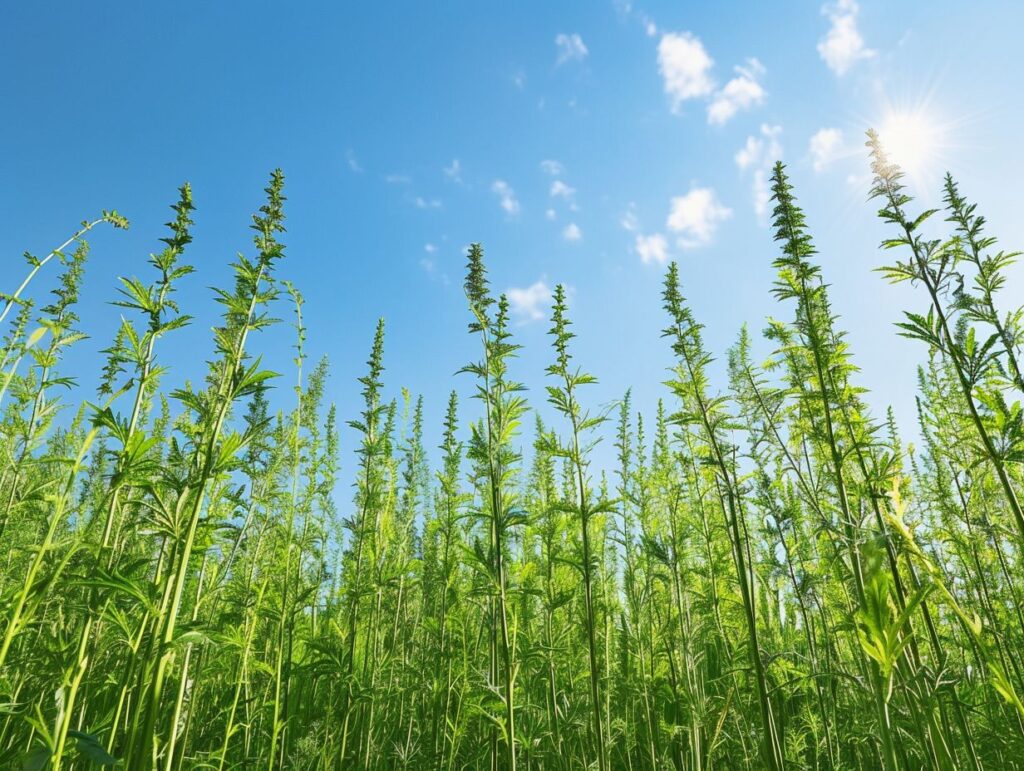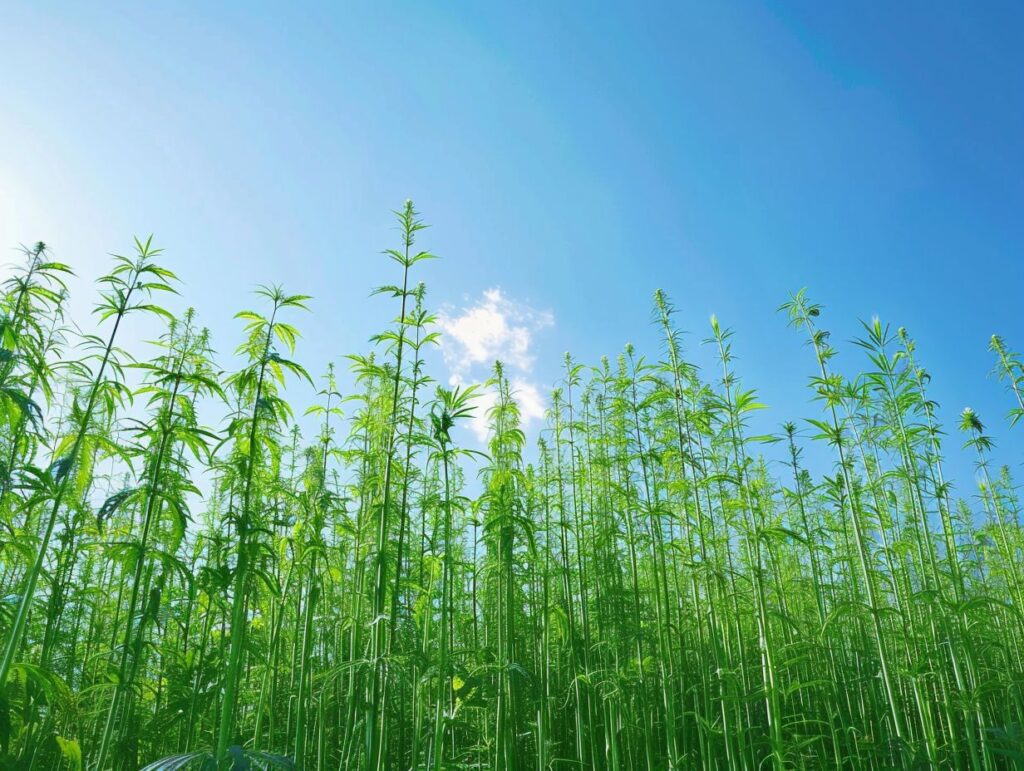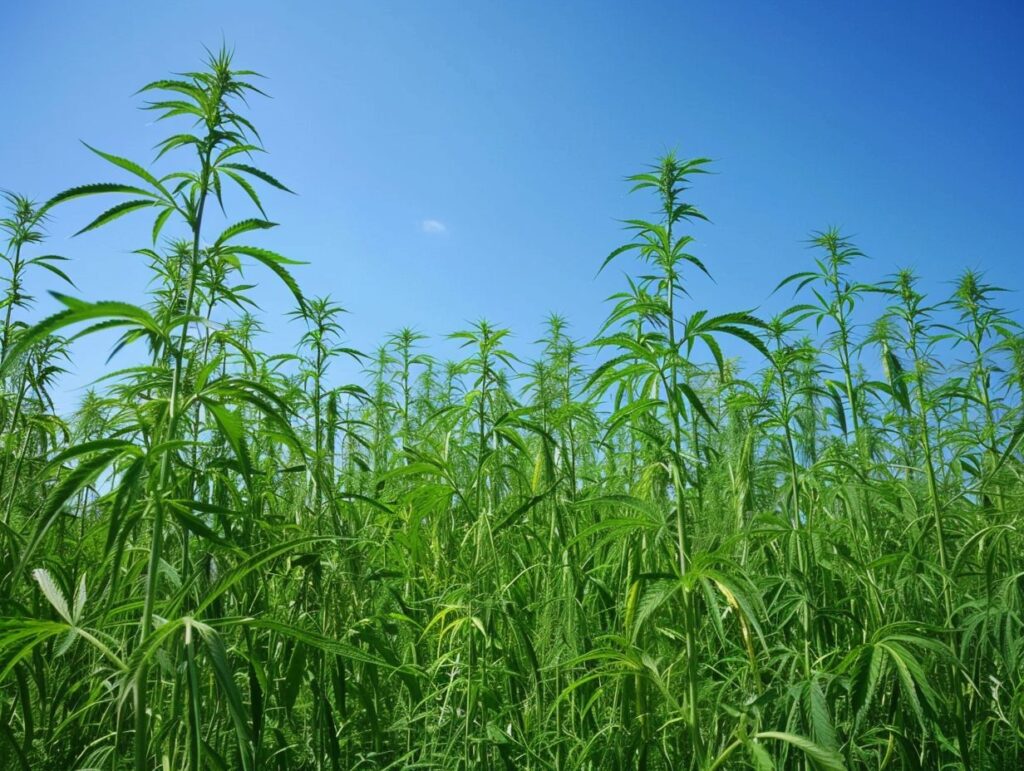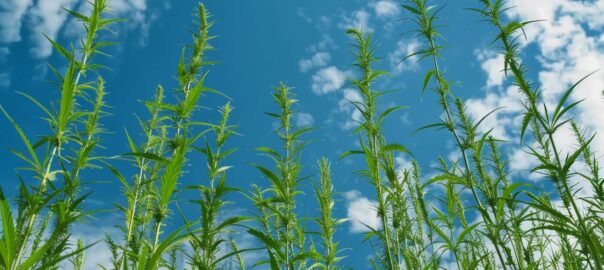Hemp farming in Oregon has a rich history, with a complex set of regulations governing its cultivation. From the licensing requirements for farmers to the restrictions on growing, there is much to navigate in this industry.
Despite the challenges and controversies surrounding hemp farming, the state is experiencing a surge in economic, environmental, and health benefits. As we explore the future of hemp farming in Oregon, potential changes in regulations and the growth of the industry will undoubtedly impact the state’s economy and environment.
What is Hemp Farming?
Hemp farming refers to the cultivation of industrial hemp plants for various purposes, such as extracting fibers, seeds, and cannabinoids. It is a crucial sector within the farming industry, known for its versatility and sustainable agricultural practices.
Throughout history, hemp cultivation has played a significant role in numerous industries, including textiles, food production, and wellness products. The durable fibers extracted from hemp plants have been utilized for centuries to create clothing, ropes, and paper. Hemp seeds are a rich source of nutrition, containing essential fatty acids and proteins. The cultivation of hemp not only benefits the economy and environment but also provides farmers with a valuable crop option that can improve soil health and reduce the need for pesticides.
History of Hemp Farming in Oregon
The history of hemp farming in Oregon dates back to the early agricultural practices of the region, influenced by state laws and cultivation regulations specific to hemp production. Oregon has a rich heritage of hemp cultivation, reflecting the evolution of state laws and agricultural policies.
Throughout the years, Oregon has played a pivotal role in the development of hemp farming practices, with the state enacting legislation to support the industry. Significant milestones in the timeline include the passage of the 2014 Farm Bill, which authorized states to launch pilot programs for industrial hemp cultivation. Following this, the 2018 Farm Bill further expanded opportunities for hemp production by removing it from the list of controlled substances. These legislative changes paved the way for Oregon farmers to embrace hemp as a viable crop, leading to the resurgence of hemp cultivation in the state.
Current Status of Hemp Farming in Oregon
The current status of hemp farming in Oregon is characterized by stringent compliance measures, sustainable farm operations, and adherence to state regulations. Hemp farmers in Oregon prioritize compliance with legal restrictions and environmental regulations to ensure the quality and sustainability of their crop.
They closely follow the guidelines set by the Oregon Department of Agriculture to maintain the integrity of their operations. Farmers focus on using organic and natural farming methods to cultivate high-quality hemp products.
Despite facing challenges such as fluctuating market demands and changing regulatory frameworks, hemp farmers in Oregon find opportunities in expanding product lines and accessing new markets.
Emphasizing sustainable practices not only benefits their business but also contributes to the overall health of the environment and community.
What are the Regulations for Growing Hemp in Oregon?
The regulations for growing hemp in Oregon are established by state statutes and agricultural guidelines that govern various aspects of hemp cultivation. Compliance checks are conducted to ensure that hemp farmers adhere to the regulatory framework and meet the state requirements.
Hemp farmers in Oregon looking to engage in cultivation activities must first obtain a license from the Oregon Department of Agriculture (ODA) before beginning any planting operations. The license application process involves submitting detailed information about the intended cultivation site, cultivation methods, and planned hemp varieties. Farmers are required to comply with specific cultivation standards set by the state to ensure the quality and safety of the hemp produced. Regular compliance checks are also carried out to monitor adherence to these regulations and maintain the integrity of the hemp industry in Oregon.
What are the Licensing Requirements for Hemp Farmers in Oregon?
Hemp farmers in Oregon must meet specific licensing requirements outlined by state regulations to engage in hemp cultivation legally. The licensing standards set by the state ensure that farmers adhere to regulatory guidelines and operate within the legal framework.
These criteria include background checks to verify the applicants’ criminal history and confirm that they have not violated any drug laws. Farmers are required to provide detailed cultivation plans, outlining factors such as the size of their hemp crop, intended use, and methods for pest control and crop monitoring. The rigorous evaluation process aims to maintain the integrity of the hemp industry by abiding by strict quality standards and promoting transparency in operations.
What are the Testing and Reporting Requirements for Hemp Farmers in Oregon?
Hemp farmers in Oregon are subject to testing and reporting requirements to demonstrate regulatory compliance and uphold crop quality standards. Crop inspection plays a crucial role in ensuring that hemp production meets the regulatory standards set forth by the state.
By monitoring their crops regularly and conducting thorough quality control measures, farmers can detect any potential issues early on and take necessary corrective actions. Adhering to these obligations not only benefits the farmers themselves in terms of maintaining a good reputation and consumer trust but also contributes to the overall integrity of the hemp industry. Through transparent reporting and compliance, farmers showcase their commitment to producing high-quality hemp products that meet the stringent requirements imposed by state regulations.
What are the Restrictions on Hemp Farming in Oregon?

Hemp farming in Oregon is subject to various restrictions imposed by legal provisions, cultivation permits, and environmental regulations that dictate farming standards. Compliance with these restrictions is essential to ensure sustainable practices and uphold the integrity of the agricultural landscape.
These restrictions aim to regulate the cultivation of hemp, addressing issues such as land use, water conservation, and pesticide management. Under Oregon law, farmers must obtain a cultivation permit to grow hemp, which requires adherence to specific guidelines to protect the environment and ensure product quality. Environmental regulations also play a crucial role in limiting the impact of farming activities on ecosystems and natural resources, promoting responsible agricultural practices for the long-term benefit of both farmers and the environment.
Benefits of Hemp Farming in Oregon
Hemp farming in Oregon offers a multitude of benefits, including economic advantages through job creation and revenue generation, environmental benefits like soil rejuvenation and carbon sequestration, and health benefits from hemp-derived products promoting wellness.
Also, the cultivation of hemp in Oregon contributes significantly to sustainable practices by requiring fewer pesticides and herbicides compared to traditional crops. This not only helps in reducing chemical runoff into water sources but also promotes biodiversity in the farming ecosystems. The economic growth spurred by hemp farming in Oregon has led to the revitalization of rural communities, creating a ripple effect of increased property values, local business growth, and improved infrastructure, ultimately enhancing the overall well-being of the community members.
Economic Benefits
The economic benefits of hemp farming in Oregon are evident in the creation of job opportunities, economic growth in rural areas, and the development of a sustainable agriculture sector. Hemp cultivation contributes significantly to the state’s economy and fosters a culture of sustainable farming practices.
This growth in the hemp industry not only boosts employment rates locally but also generates substantial revenue for the state. With the increasing demand for hemp-derived products, Oregon’s agricultural sector has seen a positive shift towards embracing innovation and sustainable practices. The investment in hemp farming has opened doors for new technologies and methods, leading to a more robust and diversified economy. The ripple effects of hemp cultivation extend to community development and improved environmental conservation efforts.
Environmental Benefits
Hemp farming in Oregon provides notable environmental benefits such as soil remediation, biodiversity conservation, and sustainable crop management practices. State policies support environmentally friendly hemp cultivation methods that promote ecosystem health and agricultural sustainability.
By encouraging sustainable practices like crop rotation and minimal tillage, Oregon’s hemp farmers are able to improve soil health by reducing erosion and maintaining soil structure. These methods not only support the long-term viability of the land but also help in retaining water and nutrients in the soil, promoting healthier plant growth.
The cultivation of hemp in Oregon plays a significant role in biodiversity conservation by providing habitats for various beneficial insects and wildlife, contributing to a more balanced and thriving ecosystem.
Health Benefits
Hemp farming in Oregon contributes to health benefits by producing high-quality hemp-derived products that promote wellness, support a healthy lifestyle, and offer natural remedies for various health conditions. Following specific harvesting procedures and farming guidelines ensures the preservation of product quality and efficacy.
By adhering to these careful practices, Oregon hemp farmers are able to cultivate hemp plants rich in beneficial compounds such as CBD, which have been shown to have anti-inflammatory and relaxing properties. The sustainable farming methods employed not only safeguard the environment but also help in creating a supply chain of organic and chemical-free hemp products. Consumers can trust that the hemp-derived goods they purchase from Oregon are not only good for their well-being but are also ethically and responsibly sourced.
Challenges and Controversies Surrounding Hemp Farming in Oregon
Hemp farming in Oregon faces challenges and controversies related to legal conflicts with federal law, concerns about cross-pollination with marijuana crops, and the potential impact on traditional agriculture practices. These issues spark debates and discussions within the agricultural community.
Some farmers believe that the lucrative opportunities presented by hemp cultivation outweigh the risks associated with cross-pollination and legal uncertainties.
On the other hand, traditional agriculturalists express concerns about preserving the integrity of their crops and fear the unintended consequences of allowing hemp to be grown in close proximity to other plants.
This clash of perspectives highlights the complex nature of the situation and emphasizes the need for careful regulation and communication among stakeholders in the industry.
Legal Conflicts with Federal Law

Legal conflicts with federal law pose a significant challenge to hemp farming in Oregon, as conflicting legislation and compliance standards create uncertainty for growers and regulatory authorities. Navigating these legal complexities requires a nuanced understanding of the regulatory landscape and industry practices.
Federal laws that affect hemp production intersect with state regulations, leading to intricate legal battles that impact the entire industry. Growers must stay abreast of changing laws and adapt swiftly to remain compliant.
The clash between federal and state laws can result in confusion, delays in production, and even legal penalties for non-compliance. Staying informed about legislative requirements and investing in legal counsel can help mitigate risks and ensure a smoother operation within the hemp farming sector in Oregon.
Concerns about Cross-Pollination with Marijuana
Cross-pollination concerns between hemp and marijuana cultivation in Oregon raise issues related to crop monitoring, compliance regulations, and genetic purity. Ensuring the separation of hemp and marijuana crops is essential to prevent cross-contamination and maintain the integrity of both industries.
This challenge stems from the fact that hemp and marijuana belong to the same species, Cannabis sativa, making them susceptible to unintentional pollination. In Oregon, where both crops are widely cultivated, the risk of cross-pollination is particularly high. To address this, farmers must implement strict monitoring practices and adhere to regulatory guidelines that govern the physical distance required between hemp and marijuana fields. Maintaining genetic purity is crucial not only for crop quality but also to comply with legal standards that differentiate between industrial hemp and marijuana plants.
Impact on Traditional Agriculture
The growing presence of hemp farming in Oregon has implications for traditional agriculture, impacting established practices, agricultural guidelines, and the regulatory framework. Balancing the integration of hemp cultivation with traditional agriculture requires alignment with existing guidelines and regulatory frameworks.
This dynamic intersection between hemp farming and traditional agricultural practices in Oregon presents both challenges and opportunities. Traditional farmers may face difficulties in adapting to the cultivation of hemp due to differences in farming techniques and market demands. Ensuring a harmonious coexistence between hemp and traditional crops involves navigating zoning regulations, crop rotation requirements, and pesticide use restrictions.
The diversification potential and economic opportunities that hemp offers can also revitalize and sustain traditional agriculture, bringing new revenue streams and enhancing environmental sustainability practices.
Future of Hemp Farming in Oregon
The future of hemp farming in Oregon holds promise for potential changes in regulations, the growth of the hemp industry, and the impact on the economy and environment of the state. Anticipated shifts in state policies and advancements in the hemp sector signal a transformative trajectory for the industry.
As Oregon continues to pave the way for hemp cultivation, new regulatory frameworks are expected to streamline licensing processes and enhance cultivation standards, encouraging more farmers to enter the market. With increasing demand for hemp-derived products like CBD and textiles, the state’s agricultural landscape is poised for significant diversification and expansion. These developments not only present economic opportunities but also have the potential to improve sustainable farming practices and environmental stewardship in Oregon.”
Potential Changes in Regulations
Anticipated potential changes in regulations for hemp farming in Oregon underscore the dynamic nature of the legislative framework and the need for proactive compliance measures. As the industry evolves, regulatory adjustments are expected to address emerging challenges and opportunities in hemp cultivation.
These regulatory updates not only reflect the maturation of the hemp industry but also signify the state’s commitment to ensuring sustainable and responsible growth within the sector. Stakeholders in Oregon’s hemp market are preparing for possible shifts in licensing requirements, testing protocols, and compliance standards.
The flexibility of the legislative framework allows for timely responses to changing circumstances, fostering innovation and competitiveness among farmers and processors. The ongoing dialogue between regulators and industry players is vital for maintaining a balance between promoting growth and safeguarding quality standards.
Growth of the Hemp Industry in Oregon
The growth of the hemp industry in Oregon reflects the increasing demand for hemp-derived products, advancements in licensing procedures, and adherence to crop regulations. The expanding hemp sector contributes to economic development, innovation in cultivation practices, and market diversification.
The licensing procedures in Oregon have played a pivotal role in streamlining the entry of more farmers and businesses into the hemp market. With clear regulations and licensing requirements, individuals and organizations are encouraged to participate in the industry, driving further growth and competition. Crop regulations ensure the quality and consistency of hemp products, strengthening consumer trust and expanding market reach. The dynamic market forces at play, coupled with supportive governmental policies, are propelling Oregon’s hemp industry towards sustained success.
Impact on the Economy and Environment of Oregon

The impact of hemp farming on the economy and environment of Oregon underscores the interconnected nature of agricultural practices and state requirements. Hemp cultivation influences economic growth, environmental sustainability, and compliance with state regulations, shaping the agricultural landscape of the region.
When examining the economic benefits of hemp farming in Oregon, it becomes evident that the industry provides a significant source of revenue for local farmers and businesses. The versatility of hemp as a crop not only creates job opportunities but also stimulates various sectors such as manufacturing, research, and retail. This sustainable agricultural practice contributes to the overall economic diversification of the state, reducing dependency on traditional crops and fostering a more resilient and dynamic economy.
Frequently Asked Questions
Is hemp farming legal in Oregon?
Yes, hemp farming is legal in Oregon. The state passed the Oregon Industrial Hemp Program in 2009, which allowed for the cultivation, processing, and sale of industrial hemp.
What is the legal definition of hemp in Oregon?
According to the Oregon Department of Agriculture, hemp is defined as “the plant Cannabis sativa L. and any part of such plant, whether growing or not, with a delta-9 tetrahydrocannabinol (THC) concentration of not more than 0.3 percent on a dry weight basis.”
Do hemp farmers in Oregon need a license?
Yes, all hemp farmers in Oregon must obtain a license from the Oregon Department of Agriculture. The application process includes submitting a criminal background check and a nonrefundable application fee.
Are there any restrictions on where hemp can be grown in Oregon?
Yes, there are restrictions on where hemp can be grown in Oregon. The state requires a minimum distance of at least 1,000 feet from any school, park, or residential area.
What are the regulations for testing hemp in Oregon?
Hemp farmers in Oregon are required to have their crops tested by a state-approved laboratory to ensure that the THC levels are below 0.3 percent. Failure to comply with this regulation can result in destruction of the crop.
Are there any regulations on the sale of hemp products in Oregon?
Yes, all hemp products sold in Oregon must comply with labeling and testing requirements set by the state. These regulations include accurate labeling of the product’s ingredients and potency levels.
